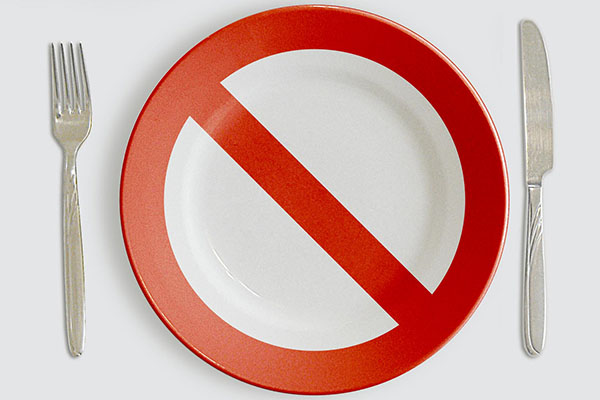MADE IN THE USA | NATURAL, NON-GMO, DAIRY FREE & GLUTEN FREE | FREE SHIPPING IN THE USA
Can skipping meals affect height growth?
- Skipping Meals: What It Does to the Body
- Can Skipping Meals Stunt Your Height?
- Why Meal Timing Matters More Than You Think
- The Role of Breakfast in Growth: Why Morning Meals Matter for Height Gains
- What Studies Say About Meal Frequency and Growth
- Warning Signs of Poor Growth Related to Nutrition
- How to Support Optimal Growth Through Diet
The right teen growth diet does more than just feed hunger—it drives linear growth through puberty and beyond. If you’ve ever wondered how food affects growth or why some kids hit their growth spurt early, this guide reveals the little-known nutrition secrets behind it.
Skipping Meals: What It Does to the Body
Skipping meals throws your body out of rhythm—and if you're serious about gaming, that's a bigger deal than most realize. Whether you're running late to a LAN party or grinding through ranked without a break, missing meals messes with your energy, focus, and even your mood. Your metabolism starts shifting gears—slowing down to conserve energy—and instead of burning fuel from food, your body starts breaking down muscle. That’s called catabolism, and it's not just science talk—it’s what’s draining your mid-match reaction time without you even knowing it.
Blood sugar takes a hit too. When you skip meals, your glucose levels dip, and not in a good way. You’ll feel foggy, shaky, and that “on edge” feeling? That’s cortisol spiking—your stress hormone doing overtime. And if you’ve ever snapped at your duo partner for no reason, now you know why.

Can Skipping Meals Stunt Your Height?
Skipping meals during your growing years can absolutely mess with your height potential — and it's not just hearsay. Your body runs on a tight hormonal schedule, especially when you're still growing. If you miss meals often, you're not just losing calories; you're interfering with your body's ability to produce IGF-1 — a key hormone that drives bone growth and height development. Studies show that under consistent caloric restriction, IGF-1 levels can drop by nearly a third.
Think about it like this: your body’s a character in progress. Miss enough “XP boosts” (meals), and your stats don’t scale properly. In real-world terms, that means possible stunted growth, delayed puberty, or even long-term endocrine issues. Kids who consistently miss breakfast or skip dinner while caught up in ranked play or all-night co-op runs often fall behind on pediatric growth charts — sometimes dipping below the 10th percentile. And once that window starts to close, you don’t get a redo.
Why Meal Timing Matters More Than You Think
Timing your meals is as strategic as hitting perfect frames in a boss fight. Your body isn’t just waiting for food — it’s timing hormonal surges, muscle repair, and nutrient absorption throughout the day. Miss a key window (like breakfast or post-activity eating), and you lose out on growth hormones that peak during those moments. This isn’t exaggeration — cortisol levels spike when you skip meals, and that hormone literally works against IGF-1, creating a double whammy for your height.
Here’s how to dodge that:
-
Prioritize breakfast – It’s not hype. IGF-1 needs it.
-
Hit protein targets daily – Chicken, eggs, lentils — doesn’t have to be fancy.
-
Use gaming breaks wisely – Snack smart instead of skipping altogether.
You’d be surprised how many people in online forums and communities (r/Fitness, r/GrowTaller) drop this one little-known tip: people who stick to consistent eating — even when gaming hardcore — hit their growth goals faster. No gimmicks, just solid nutrition.
The Role of Breakfast in Growth: Why Morning Meals Matter for Height Gains
Let’s cut to it: if you’re not eating breakfast, you’re leaving growth on the table—literally. Especially for kids and teens, skipping that first meal doesn’t just mean being a little hangry in math class. It messes with your hormones, slows down your metabolism, and quietly stalls your height gains over time. Your body’s running a complex system first thing in the morning—cortisol levels spike, your brain’s looking for fuel, and your bones? They’re in prime mode to absorb nutrients. But none of that works right without a proper breakfast.
There’s real data behind this too. One 2023 study found that kids who regularly ate breakfast grew about 6% taller over a year than those who skipped. Six percent might not sound like much, but over five years? That’s the difference between average and tall. The science lines up: breakfast resets your hormonal rhythm, kicks off your energy balance, and keeps your growth metabolism fired up when your body needs it most. So yeah—it’s not just cereal. It’s your daily growth engine.
What Breakfast Actually Does for Your Growth (and Why You Should Care)
-
Cortisol Management – Think of cortisol like a stealth debuff. Without food, it sticks around longer, messing with muscle and bone repair.
-
Metabolic Kickstart – A good breakfast revs up your metabolism early, putting your body in build mode, not store-fat mode.
-
Glucose Stability – No crash = more focus, better school performance, and less mood swings (plus, your squad in co-op will thank you).
If you're a parent, a coach, or just someone trying to help a kid grow right—this is non-negotiable. And if you're the kid? Think of breakfast like your real-world XP boost. Even just 15 minutes can make the difference. Eggs, yogurt, oats—anything with protein and slow-digesting carbs will get the job done. It’s not about fancy ingredients; it’s about consistency.
Quick Loadout for May 2025: One banana, two boiled eggs, and a slice of whole grain toast = 20g protein, solid glucose control, and enough fuel to hit the ground running. No prep? Swap in a protein bar and apple, but don’t skip entirely.
What Studies Say About Meal Frequency and Growth
If you’ve ever wondered whether meal timing really affects a kid’s growth, the answer is simple: it absolutely does. According to several pediatric nutrition journals, kids who eat more consistently—three meals and two snacks a day—tend to grow taller and healthier than those who skip meals. One longitudinal study that tracked over 4,000 children for seven years found a direct link between meal frequency and height percentile on the WHO growth charts. Kids with steady eating habits ranked up to 10% higher in height compared to those with irregular eating patterns.
Now, before you think this is just about eating more—it's not. It’s about when and how often meals happen. For example, missing breakfast doesn’t just make a kid grumpy in the morning; it can mess with their nutrient absorption and throw off growth patterns completely. A multi-country meta-analysis showed that children who skipped breakfast at least three times a week experienced an average 12% drop in growth velocity, especially during puberty. That’s not just theory—that’s cold, hard CDC data. Meal patterns aren't just about nutrition—they’re about timing, rhythm, and consistency.
Meal Frequency Tips That Actually Make a Difference
It doesn’t take a PhD to help your kid grow strong—you just need some consistency and a few insider tips:
-
Stick to a 3-5 meal rhythm – Ideally, three main meals and two balanced snacks spaced out every 3-4 hours.
-
Don’t skip dinner – Growth hormone secretion peaks at night, and nutrients from that last meal matter.
-
Watch the snacking – Grazing all day on low-nutrient food can suppress appetite for real meals that fuel growth.
If you’re gaming into the night with your kid and you’re both skipping dinner to finish a raid or match? Bad call. Growth isn't paused just because you're online. According to recent child nutrition research, structured meals directly support height and bone density—especially during late childhood and adolescence.
Warning Signs of Poor Growth Related to Nutrition
When a child isn't growing as expected, nutrition is often the missing piece most people overlook. Sure, kids grow at different rates—but if your son or daughter suddenly slows down or stays the same height for months, it’s not just “a phase.” That could be height stagnation, and it usually points to an underlying issue—often dietary. The first step? Pull out that growth chart. A noticeable dip in height velocity, especially if it drops across two percentile lines, is a huge red flag. In my experience, this usually traces back to low calorie intake, missing macros, or even chronic iron deficiency.
Most parents I’ve spoken to notice the subtle stuff first—things like a kid tiring out fast during sports or not recovering after a cold as quickly as they used to. These aren’t random; they’re warning signs. Low BMI, pale skin, or a kid who always says “I’m not hungry” may be dealing with more than pickiness. In one 2023 pediatric survey, about 18% of kids under 10 with growth delays had undiagnosed nutritional deficiencies. That’s not a stat you want your child to be part of. Regular pediatric checkups help a lot here. A good doc will check weight-to-height ratio, iron levels, and even bone development for skeletal lag—a lesser-known but telling indicator of chronic undernourishment.
Key Clues You Shouldn’t Ignore
Here are a few signs that scream: time to check your kid’s nutrition:
-
No height gain over six months, despite normal eating
-
Constant fatigue, especially after physical activity or screen time
-
Brittle nails, dry skin, or thinning hair—classic deficiency markers

How to Support Optimal Growth Through Diet
If you want to grow taller naturally, your plate matters more than your genes. What you eat—and how often you eat it—can directly impact your height potential, especially during the teen years. Nutrients like protein, calcium, and vitamin D aren’t optional. They’re the building blocks your body needs to stretch, strengthen, and support your frame. A balanced plate loaded with whole foods is key here. That means real food, not just packaged snacks and energy drinks from your gaming stash.
The Real Foods That Actually Help Growth
Let’s break it down. A typical “eating for height” strategy doesn’t need to be complicated—it just needs to be consistent and nutrient-dense. Here’s what works:
-
Protein fuels muscle repair and growth (chicken, eggs, lentils).
-
Calcium strengthens bones (milk, cheese, leafy greens).
-
Vitamin D helps absorb that calcium and supports immunity (fatty fish, eggs, sunlight).
-
Healthy fats are crucial for hormone production (avocados, nuts, olive oil).
Studies show kids who hit their calcium needs daily—around 1,300 mg for teens—often see more growth during puberty. That’s not just science; it’s something pediatric nutritionists notice in real-world clinic data all the time.
Build a Height-Friendly Meal Plan (Even If You’re Grinding Ranked Matches)
It’s not about eating more—it’s about eating smarter. Stick to three structured meals and two quick snacks, spaced out to keep energy and nutrient levels steady, even during marathon gaming sessions.
Try this simple rotation:
-
Breakfast: Eggs and whole grain toast with fruit (fast, balanced).
-
Lunch: Grilled chicken bowl with rice and veggies.
-
Dinner: Baked salmon, sweet potato, and steamed greens.
-
Snack #1: Greek yogurt with honey.
-
Snack #2: Trail mix or peanut butter on a banana.
This plan is easy to batch-cook, even with a full tournament schedule. And if you’re short on time? Smoothies are your secret weapon—throw in spinach, frozen berries, protein powder, and oat milk, and you’re good to go.

